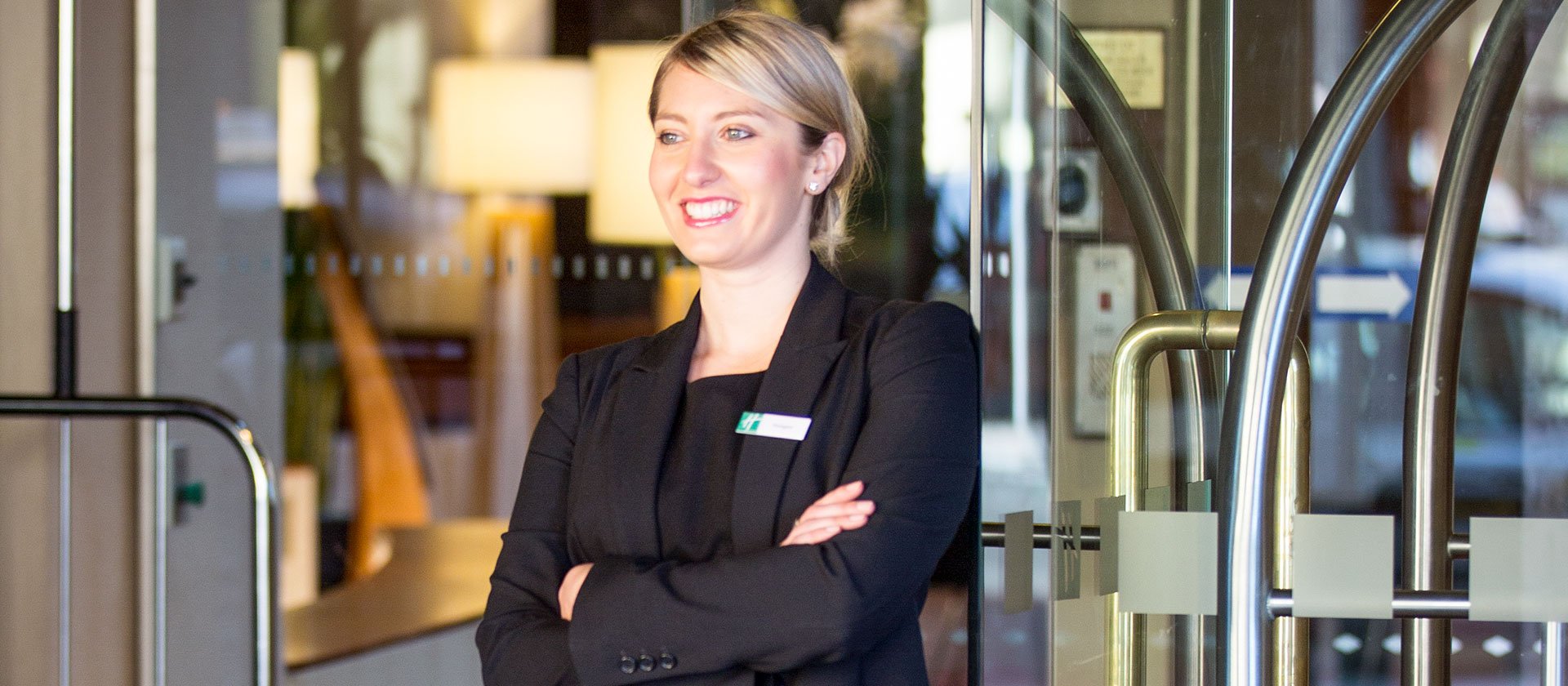
Melbourne student selected to compete in Culinary Olympics 2028
Le Cordon Bleu Melbourne is thrilled to announce that Nguyễn Hồng Anh (Hana), one of its talented students, has been selected to join the Australian National ...
 How to answer the most commonly asked interview questions
How to answer the most commonly asked interview questions
Whilst it would be useful if we knew exactly what our interviewer was wanting to hear from us when they are asking questions during an interview, no one is a mind reader!
Therefore, it is essential that we follow some basic guidelines when answering some of those tricky interview questions. Below are some good examples of commonly asked interview questions and the best ways to approach or answer them:
Can you tell me about yourself?
No one wants, or has time to hear your complete life story. What you want to do here is to pitch yourself to the interviewer; this is sometimes called an elevator pitch. This pitch has to be concise, around 30-60 seconds. It needs to be practiced and rehearsed beforehand (but not robotic). Ask yourself, what is it they really need or want to know about me? Focus on what you think would most interest the interviewer (this will depend on the organisation and position you are applying for). Highlight your most recent accomplishments and achievements. This question gives you a chance to sell yourself and should provide you with an opportunity to strategically lead the interviewer’s next questions.
What do you know about the organisation?
Always remember the six ‘P’s’: proper, prior preparation prevents poor performance! Do your research. Know the organisation well. Study their website and social media pages (including LinkedIn). Do they have a parent company? Are they affiliated with other organisations? You don’t need to regurgitate their strategic plan but they will be impressed if you are aware of their organisation’s core values and objectives. Knowledge and understanding of their company shows you are committed, dedicated and passionate about the role and working for their organisation. As an experienced interviewer, if candidates cannot tell me about the company they are applying for I am not interested in employing them. It’s. That. Simple.
What is your greatest strength/weakness?
Strengths: Many people are unaware of what their strengths are. Take the time to think about what you excel at. If you are not sure ask your friends or, even better, work colleagues. This is a great opportunity to talk about what you are good at. Make sure you link your answer back to key criteria in the job description (which you should always ask for prior to the interview). Don’t be arrogant in your answer but do be confident. Be prepared to give examples of times where you have displayed these strengths during previous work (or even at college) experiences.
Weakness: Most people fear this question but they shouldn’t. As I tell all Le Cordon Bleu students, there is always an opportunity to turn a personal weakness, or negative, into a positive. Try and avoid clichés and disingenuous answers such as “I am a perfectionist!” or “I work too hard”. Most interviewers will loathe these answers and look for ways to prove you wrong; they’ve heard it all before. Don’t tell the interviewer that you’re lazy or that your punctuality is poor, this is a good opportunity to tell them where you would like to grow or improve as this shows considered thought, insight and introspection.
Where do you see yourself in five or ten years?
This is where you can talk about your career goals AND even more importantly, how you intend to achieve them. This tells the interviewer you are ambitious and ambition means you are driven and determined to succeed. Employers want motivated employees who are hungry for success. No one expects you to stay in one job forever; recent research has shown the average tenure in any one role is approximately 4.5 years. Good employers will develop their staff and try to help them realise their ambitions so tell them what your dreams and goals are, they just might help you to achieve them...
Tell me about a time when...
This is what we call a ‘behavioural’ question. The interviewer is trying to ascertain how you will handle certain situations and whether you will fit into their organisational culture. The philosophy is that your past actions and behaviours will be a good indicator of your future behaviours. Therefore, how you acted towards certain circumstances or an incident in your previous job is a reliable indicator of how you will act in your new job.
These questions will be in the form of: ‘How did you act/perform in a previous job under a certain pressure or circumstance?’ The interviewer knows which skills and abilities are required for the job they are interviewing you for and want to know how you will react in situations within their work environment or context. It is important to show them you have a history of handling these situations well and that you are capable of doing so for their organisation. Look at the job description and list of skills and key attributes they have specified. This will give you an insight into what they are wanting to hear from you in in these answers. Take time to reflect on your previous work history before the interview.
Why should we hire you?
The best way to answer this questions is to give real examples of why your skills and experiences make you the best person for the job. Take time to compare the job description with your skills, knowledge and abilities as well as mentioning what you have accomplished in your other positions. Be positive and reiterate your interest in the organisation and the position.
Do you have any questions for us?
Don’t ask about money. There are differing opinions on this, however, the general consensus is that it is not polite or good interview etiquette. They will ask you what salary you are seeking and, if you are on their short list, this will be negotiated at a later date.
You should always have at least one question ready, if not more. If you really can’t think of one, here are a few examples (to ask the interviewer directly):
What do you most like about working for this organisation?
What advice would you give someone in this role?
What do you feel are the current challenges that face someone working in this role?
Attitude
Most importantly, our hospitality industry partners have said that 80% of the reason they employ staff is related to their attitude in an interview. Make sure you take a positive, can do and will do attitude with you to your interview and you’re giving yourself the best possible chance of success.
In the next issue of ‘Becoming a successful Le Cordon Bleu Graduate’ we will look at the importance of your referees.
Copyright © 2025 Le Cordon Bleu International B.V. All Rights Reserved.